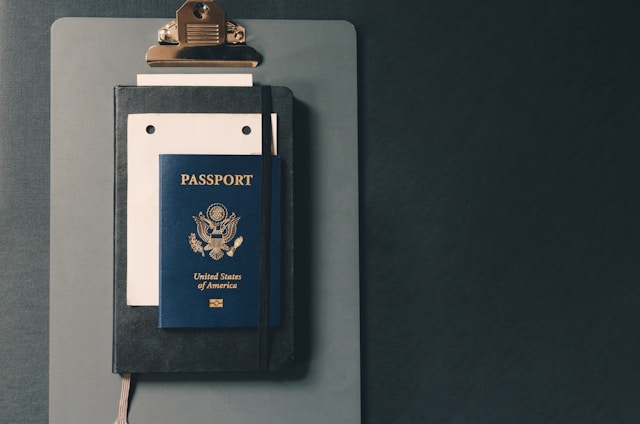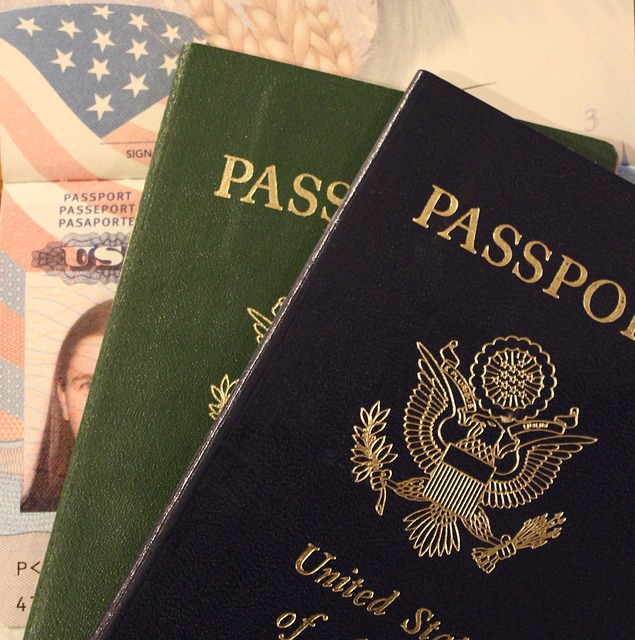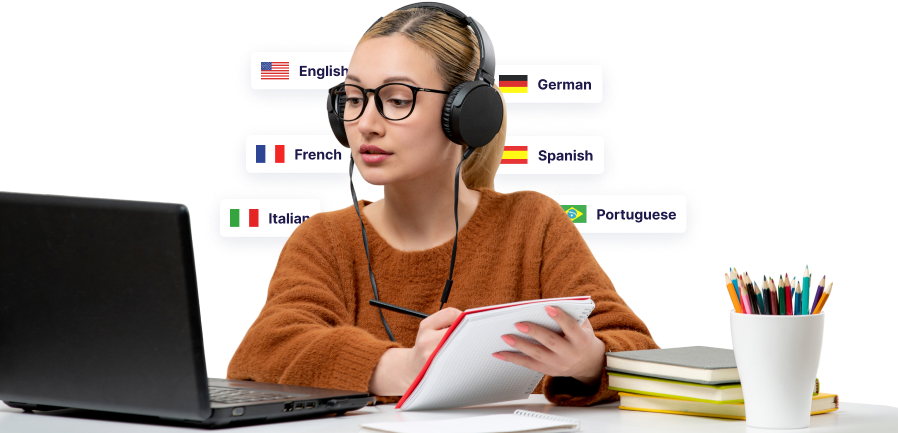Rapid Translate Team
Getting a reliable translator for your projects can sometimes be tricky. Even translators with the highest qualifications do not always create worthwhile results. That is why it is sometimes necessary to go for accredited translation services.
These are translations from either individuals or translation companies, with official recognition as professionals in the field. They offer the highest quality services and are often helpful for translating legal or official documents.
Read this post if you have queries about these accredited services.

Table of Contents
What Are Accredited Translation Services?
Accredited translation services are professional translations from agencies or individual translators with formal recognition from relevant authorities. These authorities may be governing bodies, associations, or institutions in charge of translation operations in a country or region.
Accredited services often guarantee that translations meet the required standards of accuracy, quality, completeness, and professionalism. They also enjoy official recognition.
As a result, certified translations and sworn translations are more acceptable to institutions and agencies than non-accredited translations.
Typically, translators who offer this service have accreditations or certifications from recognized bodies or institutions. For instance, in the U.S., the American Translators Association (ATA) certifies translators who have met the highest standards.
In the U.K., the Institute of Translation and Interpreting (ITI) offers accreditation to translators who meet its criteria. Before granting accreditation, these associations and institutions strictly test translators to ensure they can provide top-tier services.
Hence, these accredited professional translators must pass rigorous examinations and have extensive experience in the field. This ensures that you can trust them with important translation tasks.
Creating an accredited translation also involves multiple aspects, including reviews, editing, and proofreading, to maintain quality.
When Do You Need Accredited Legal Translation Services?
You’ll need accredited legal translation services when dealing with documents with a legal bearing. This includes documents that you intend to submit to legal authorities. These services typically stick to local and international legal requirements.
While people often assume that you’ll only need a legal translation in law, that is not always true. If you’re sending immigration applications, court proceedings, business proposals and contracts, and government-related applications, you’ll need this translation.
Overall, you’ll need this service for any official translation used in legal settings and for other formal purposes.

Benefits of Using Accredited Translation Services
There are several important benefits of going for an accredited translation service. These revolve around accuracy and professionalism as compared to non-accredited services. These services also come in handy when official recognition is necessary.
Thus, here are the advantages of these translation services.
1. They Are Accurate and Reliable
Accredited translations are usually accurate and reliable. This is because certified and sworn translators must always meet the highest standards before receiving accreditation from recognized bodies.
Accredited translations meet the standards, so there are fewer risks of errors and misinterpretations. They are especially helpful for complex, legal, and technical documents.
2. You’ll Enjoy Assured Quality and Credibility
Accredited translations undergo multiple steps to improve quality. In addition to the initial translation, professionals edit and proofread them. This process guarantees a higher level of quality and reduces the chances of inaccuracy.
Also, most agencies and institutions trust that accredited services meet the standards. This increased credibility eases your application process.
3. Accredited Translations Are Legally Recognized
Many immigration, legal, and other government-related documents require accredited translations, such as certified translations. These accredited translations are legally recognized and useful in official and legal proceedings.
Also, you’ll need this type of translation for your documents during a visa application. Translations of your birth certificates, marriage licenses, and employment contracts are only valid if they come from accredited translators.
4. They Meet International Standards
Accredited translation services usually comply with necessary international standards. Since it is necessary to maintain consistency and accuracy in all countries, they are your best bet. You’ll find them useful regardless of the language, field, or industry.

Which Documents Require Accredited Translation?
Accredited translation is mostly necessary for documents requiring the highest accuracy, legal recognition, and official approval. Documents that come from accredited translators must comply with the necessary stipulations.
Here are the types of documents that require this type of translation:
- Legal documents: Documents for official applications, legal proceedings, and legal contracts require accredited translations. These include birth certificates, wills and testaments, marriage certificates, business, real estate, and employment contracts.
- Documents for immigration and citizenship applications: If you’re translating supporting documents for residency, visa, or citizenship applications, you’ll need accredited services. These include passports, residency permits, and asylum applications.
- Academic documents: If you’re applying to enter foreign colleges and universities, you’ll need accredited translations for your academic documents. These include your academic transcripts, scholarship applications, diplomas, and degrees.
- Business and financial documents: You’ll need accredited translations for your purchase orders and invoices, tax documents, and bank statements for international transactions. Translations of tax documents and invoices are important for loan applications.
- Medical documents: If you’re going for treatment abroad or applying for insurance with international companies, you may need accredited translations. Documents like records, reports, vaccination records, and prescriptions fall within this category.
- Court documents: If you’re involved in any legal proceedings in a foreign country, you’ll need accredited translations of your court documents. This includes court orders, witness statements, affidavits, appeals, and legal complaints.
- Employment documents: You’ll need translated copies of your employment documents to apply for a work visa or work with a foreign employer. But you must also get accredited translations. These documents include employment contracts, work permits, and reference letters.
The required accreditation depends on your target country and language pair. While you may need certified translations in some cases, you’ll need sworn translations in other instances.
How To Choose Reliable Accredited Translators
You must have reliable, accredited translators to ensure your translated documents are accurate and acceptable to relevant authorities. They can be individual translators or translation companies. Either way, there are things you must look out for; here are a few:
- Verify the translator’s accreditation: Ensure the translator has a valid certification with the relevant institution. If you’re in the U.S., confirm that they are ATA-certified translators. The association’s directory provides a convenient way to check for this detail.
- Determine their experience and expertise: Always review the translator’s portfolio to determine their experience. Check if they have worked on projects similar to yours. Since some tasks require subject matter knowledge, only specialized translators can handle them.
- Check their customer reviews: Before hiring accredited translators, you must also find out how past customers assess them. Read client testimonials and case studies to understand their reliability, accuracy, and professionalism.
- Compare their pricing structure: Reliable accredited translators usually offer clear pricing structures. Hence, always request a clear breakdown of the costs across translation, editing, and proofreading. This will help you strike a balance between quality and affordability.
- Inquire about revisions: If translated documents contain errors, it is often necessary to revise and edit them. Thus, inquire from the accredited translator about their policy on support after delivery.
If you thoroughly vet accredited translators, you can get one that provides high-quality services to fit your requirements. While accredited services are often accurate, you should also find one that fits your exact translation task.

FAQ
Now that you’ve learned about accredited translations, let’s answer some common questions about the subject!
What is an accredited translation?
An accredited translation is one from an officially recognized individual translator or agency. This official recognition usually comes from a relevant institution or government agency. Certified and sworn translations fall under this category.
Do you need accredited translation for all documents?
No, you do not need accredited translations for all types of documents. While it is necessary for legal, immigration, academic, and business documents, informal documents do not need this translation. Web content, adverts, and social media posts do not require accredited translations.
Get Accredited Translation From Rapid Translate
Are you in need of an accredited translation? Rapid Translate offers certified translations for documents and certificates. Our translations enjoy worldwide acceptance because they are highly accurate and from accredited professionals.
With an average delivery time of less than 24 hours, we offer one of the fastest delivery times in the industry. We also provide notarized translations and rushed mail options, and our 24/7 customer support makes the translation process even more seamless.
To make an order, visit our website, select your preferred options, and submit your documents. Then, wait for our accredited translators to complete the task and return it to you. Afterward, review the translation and request for revisions if there are any.
After we have revised the document, you’ll receive the final copy via email. We can also send physical copies and notarized versions.
Why wait any longer? Get your accredited translation services now!





